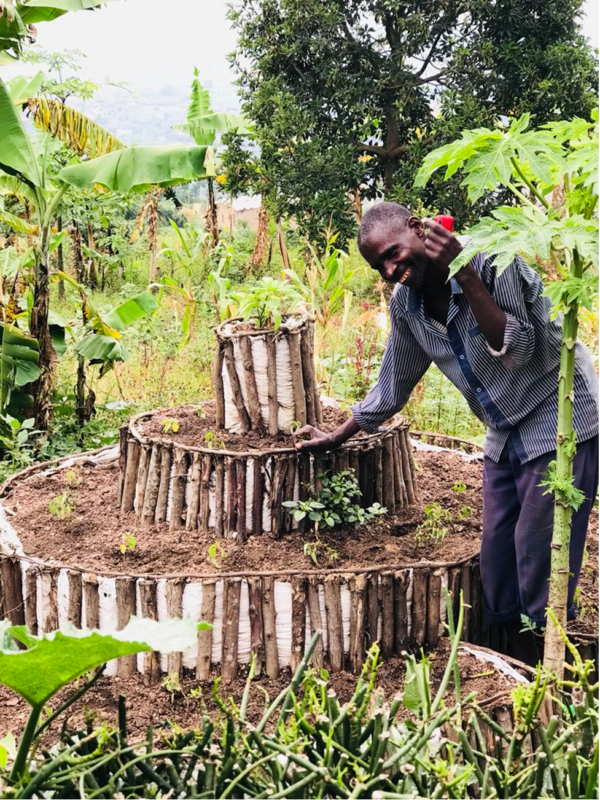Kamonyi, Rwanda – 27th June 2019
In a significant step towards improving sanitation and food security in the region, thirteen households in Ntebe village, Kamonyi, have gained access to Ecosan latrines under the Rugalika Water Supply Project, jointly implemented with Sign of Hope/BMZ. Previously reliant on unimproved latrines, these families now benefit from sustainable sanitation solutions, which are proving instrumental in supporting agricultural production through kitchen gardens.
Ecosan toilets, a sustainable sanitation system, operate on the principle of separating urine and faeces. Urine, which is rich in nitrogen and other nutrients, is collected and used as a sterile liquid fertilizer in kitchen gardens, while faeces are composted in an underground chamber. This compost, combined with the use of ashes to manage moisture and odors, enhances soil quality and contributes to agricultural productivity.
For many of these households, the combination of Ecosan toilets and kitchen gardens has had a profound impact. “We didn’t know what the right foods for children were until we were introduced to kitchen gardens,” shared Eliezer Sayinzoga, a father of three. The program integrates nutrition education with practical demonstrations on growing healthy, nutrient-rich foods at home, helping families establish balanced diets. Sayinzoga, like many others, no longer needs to buy vegetables from the market, as his garden supplies an abundant and sustainable source of produce.
Among the other beneficiaries are Ms. Martha Mukabega and Ms. Therese Mukagasana, who emphasized the convenience and health benefits of growing their own vegetables. “Kitchen gardens have changed our lives. We are now able to have a constant supply of vegetables, and our children are assured of a balanced diet,” said Ms. Mukabega. With crops like carrots, cabbage, beetroots, greens, and peppers thriving in their gardens, families in Ntebe village are enjoying improved nutrition and better overall health.
The kitchen garden initiative, part of the wider Rugalika Water Supply Project, involves both training and practical support. Each of the 13 households in Ntebe village received training on nutrition and assistance in setting up their gardens, creating a ripple effect in the community. By using their own gardens as examples, beneficiaries like Ms. Mukabega and Ms. Mukagasana are able to share their knowledge with neighbors, promoting the cultivation of nutrient-rich foods across the village.
This successful model of integrating sanitation and agriculture offers hope for combating nutritional deficiencies in rural Rwanda. The combination of Ecosan toilets and kitchen gardens is a testament to the impact that practical, sustainable solutions can have on health, hygiene, and community resilience.


